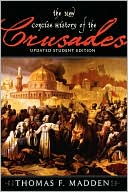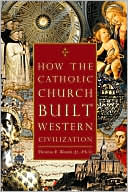My apologies. My excuse this week is a nasty cold. Ah well. What follows are the final two individuals in Matthew's second grouping of Jesus' genealogy taking us up to "about the time they were carried away to Babylon." (No "it's" here MW :-) I double checked.)
Advent Study #9 is here
#8 can be found here Study #7 and links to previous studies is here.
Our focus questions are:
who are they?
where are they from?
what place do they have-
-in the Biblical text
- in the story of salvation
-and in relation to Jesus specifically.
Josias (from the Catholic Encyclopedia)
(JOSIAH— Hebrew for "Yahweh supports"; Septuagint 'Iosías).
A pious King of Juda (639-608 B.C.), who ascended the throne when he was only eight years of age. He was the son of Amon and the grandson of Manasses. His mother's name is given as Idida, the daughter of Hadaia [IV (II) Kings, xxii, 1]. Of the actual influences under which he grew up nothing is known for certain. His reign of thirty-one years is recorded in the parallel and slightly divergent asccounts of IV (II) Kings, xxii-xxiii, 30, and II Paralipomenon (Chronicles), xxxiv-xxxv. The following is a summary of Josias's public acts as they are set forth in the former of these accounts. In the eighteenth year of his rule, the Jewish king undertook to repair the Temple with the help of the high-priest Helcias. During the course of this work, Helcias found "the Book of the Law", and handed it to the royal scribe, Saphan, who read it to Josias. The threats made therein against the transgression of its contents frightened the monarch, who well knew how often these had been disobeyed in the past, and who sent to consult the prophetess Holda then living in Jerusalem. Holda declared that the threatened punishments would indeed take place, but only after Josias's death. Whereupon the king assembled the people, published the Law in their hearing, and they all united with Josias in a solemn vow of obedience to its commands. This was followed by a drastic reformation of worship not only in Juda and in Jerusalem, but also in Northern Israel, which was not strictly a part of Josias's kingdom, but in which the Jewish prince could easily intervene, owing probably to the feeble hold of Assyria at the time upon this distant portion of its territory. The work of reform was concluded by a magnificent celebration of the Pasch.
Of the thirteen years of Josias's reign which followed this important reformation, nothing is said in the narrative of the Fourth Book of Kings. We are simply told of the monarch's exceeding piety towards Yahweh and of his death on the battle-field of Mageddo, where he perished fighting against the Egyptian Pharaoh, Nechao II, who was then on his way to the Euphrates against the Assyrians. Whoever compares carefully and impartially with this first account of Josias's reign the second one given in 2 Chronicles 34-35, cannot help being struck with their wonderful substantial agreement. Both Biblical records agree perfectly as to the age of the king at his accession and as to the length of his reign. Like the narrative of Kings, that of Paralipomenon refers to the eighteenth year of Josias's rule the discovery of the "Book of the Law", relates the samecircumstances as attending that event, speaks of a work of religious reform as carried out throughout all Israel on account of the contents of that book, and praises the magnificence of the solemn Pasch celebrated in harmony with its prescriptions. Like the narrative of Kings, too, that of Paralipomenon appreciates in the most favourable manner the king's character and describes his death on the battle-field of Mageddo when fighting against Nechao. In view of this it is plain that the differences, noticeable in their respective accounts of the reign of Josias by the authors of 2 Kings and 2 Chronicles, are only slight variations naturally accounted for by the somewhat different purposes which the two inspired. With regard to the exact extent and the Mosaic origin of the "Book of the Law", discovered under Josias, see PENTATEUCH.
From Christian Answers
Meaning: healed by Jehovah, or Jehovah will support
the son of Amon, and his successor on the throne of Judah (2 Kings 22:1; 2 Chr. 34:1)
His history is contained in 2 Kings 22, 23. He stands foremost among all the kings of the line of David for unswerving loyalty to Jehovah (23:25). He "did that which was right in the sight of the Lord, and walked in all the way of David his father." He ascended the throne at the early age of eight years, and it appears that not till eight years afterwards did he begin "to seek after the God of David his father." At that age he devoted himself to God. He distinguished himself by beginning a war of extermination against the prevailing idolatry, which had practically been the state religion for some seventy years (2 Chr. 34:3; compare Jer. 25:3, 11, 29).
In the eighteenth year of his reign he proceeded to repair and beautify the temple, which by time and violence had become sorely dilapidated (2 Kings 22:3, 5, 6; 23:23; 2 Chr. 34:11). While this work was being carried on, Hilkiah, the high priest, discovered a roll, which was probably the original copy of the law, the entire Pentateuch, written by Moses.
When this book was read to him, the king was alarmed by the things it contained, and sent for Huldah, the "prophetess," for her counsel. She spoke to him words of encouragement, telling him that he would be gathered to his fathers in peace before the threatened days of judgment came. Josiah immediately gathered the people together, and engaged them in a renewal of their ancient national covenant with God. The Passover was then celebrated, as in the days of his great predecessor, Hezekiah, with unusual magnificence. Nevertheless, "the Lord turned not from the fierceness of his great wrath wherewith his anger was kindled against Judah" (2 Kings 22:3-20; 23:21-27; 2 Chr. 35:1-19). During the progress of this great religious revolution Jeremiah helped it on by his earnest exhortations.
Soon after this, Pharaoh-Necho II. (q.v.), king of Egypt, in an expedition against the king of Assyria, with the view of gaining possession of Carchemish, sought a passage through the territory of Judah for his army. This Josiah refused to permit. He had probably entered into some new Alliance with the king of Assyria, and faithful to his word he sought to oppose the progress of Necho.
The army of Judah went out and encountered that of Egypt at Megiddo, on the verge of the plain of Esdraelon. Josiah went into the field in disguise, and was fatally wounded by a random arrow. His attendants conveyed him toward Jerusalem, but had only reached Hadadrimmon, a few miles south of Megiddo, when he died (2 Kings 23:28, 30; compare 2 Chr. 35:20-27), after a reign of thirty-one years. He was buried with the greatest honors in fulfilment of Huldah's prophecy (2 Kings 22:20; compare Jer. 34:5). Jeremiah composed a funeral elegy on this the best of the kings of Israel (Lam. 4:20; 2 Chr. 35:25). The outburst of national grief on account of his death became proverbial (Zech. 12:11; compare Rev. 16:16).
Jechonias
Also known as:
Jechoniah (in New Revised Standard Version)
Jeconiah (1 Chr. 3:16)
Coniah (an abbreviation of Jeconiah) (Jer. 22:24)
Jekonjah
Jehoiachin Meaning: _____________ -->
one of the Israelite kings in the legal ancestry of Jesus Christ, through his foster-father Joseph, a descendant of King David (Matt. 1:16)
See: Matthew 1:11-12
"It was Jechoniah whose sins caused God to cut his seed off from ever sitting on David's throne (Jeremiah 22:24-30). …Jechoniah's royal line of descendants is listed here [in the genealogy of Matthew 1] to show the legal right of Joseph, the foster father of Jesus, to David's throne (Matthew 1:16). Neither Joseph nor any others of Jechoniah's seed could ever have the spiritual right to the throne. That right must be carried through Mary's ancestry" (Dr. Henry M. Morris, The Defender's Study Bible, note for Matt. 1:11.).
See: Mary, mother of Jesus
"Coniah is an abbreviation of Jeconiah (1 Chronicles 3:16), which is another form of the name Jehoiachin (2 Kings 24:6). Coniah was the last king of Judah in the direct line from King David. When he was deported to Babylon by Nebuchadnezzar (2 Chronicles 36:10), Coniah's uncle Zedekiah was assigned to rule Judah for a brief reign, but he also was put down, and no later king was ever able to regain the throne" (Dr. Henry M. Morris, The Defender's Study Bible, note for Jer. 22:24.).
See Jeremiah 22:24-30 and 33:15-17.
For more information about this man, see Jehoiachin.


No comments:
Post a Comment